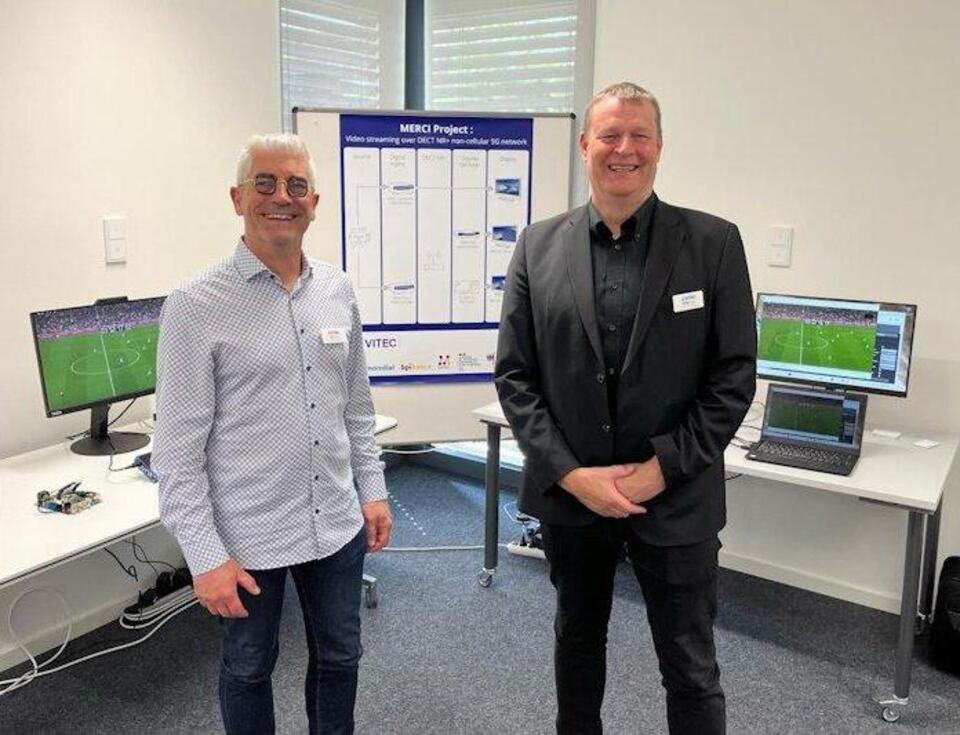
VITEC and RFmondial achieved a significant milestone by demonstrating the world’s first ultra-low latency video streaming over DECT NR+, a new non-cellular 5G standard.
This event, part of the MERCI project led by Sennheiser and supported by Franco-German collaboration, took place during a public workshop in Hannover, Germany.
Technical Details and Contributions
The demonstration showcased how VITEC’s advanced video encoder and decoder, known for their energy efficiency and low latency, worked seamlessly with RFmondial’s compact DECT NR+ technology, based on the Nordic chipset, to deliver high-definition video streaming with latencies as low as 50 milliseconds and coverage up to 100 meters. This performance illustrates a significant advancement in wireless video transmission technology, particularly in demanding environments where such capabilities are crucial.
Industry and Government Backing
The MERCI project enjoys the support of the German and French governments as part of their respective 5G initiatives. The project focuses on two primary applications: enhancing public venue displays and remote video production, and enabling technologies for industrial robots and remote vehicle operation.
Future Prospects and Implications
With the demonstrated capabilities of NR+, which include ultra-low latency and high reliability without the need for extensive infrastructure, there is potential for broader adoption in various fields. This could range from public venues to industrial and medical environments. VITEC is also developing the next generation of high-efficiency, low-latency video coding technology, which is expected to further enhance performance and robustness for wireless video connectivity.
News source: https://www.vitec.com/










